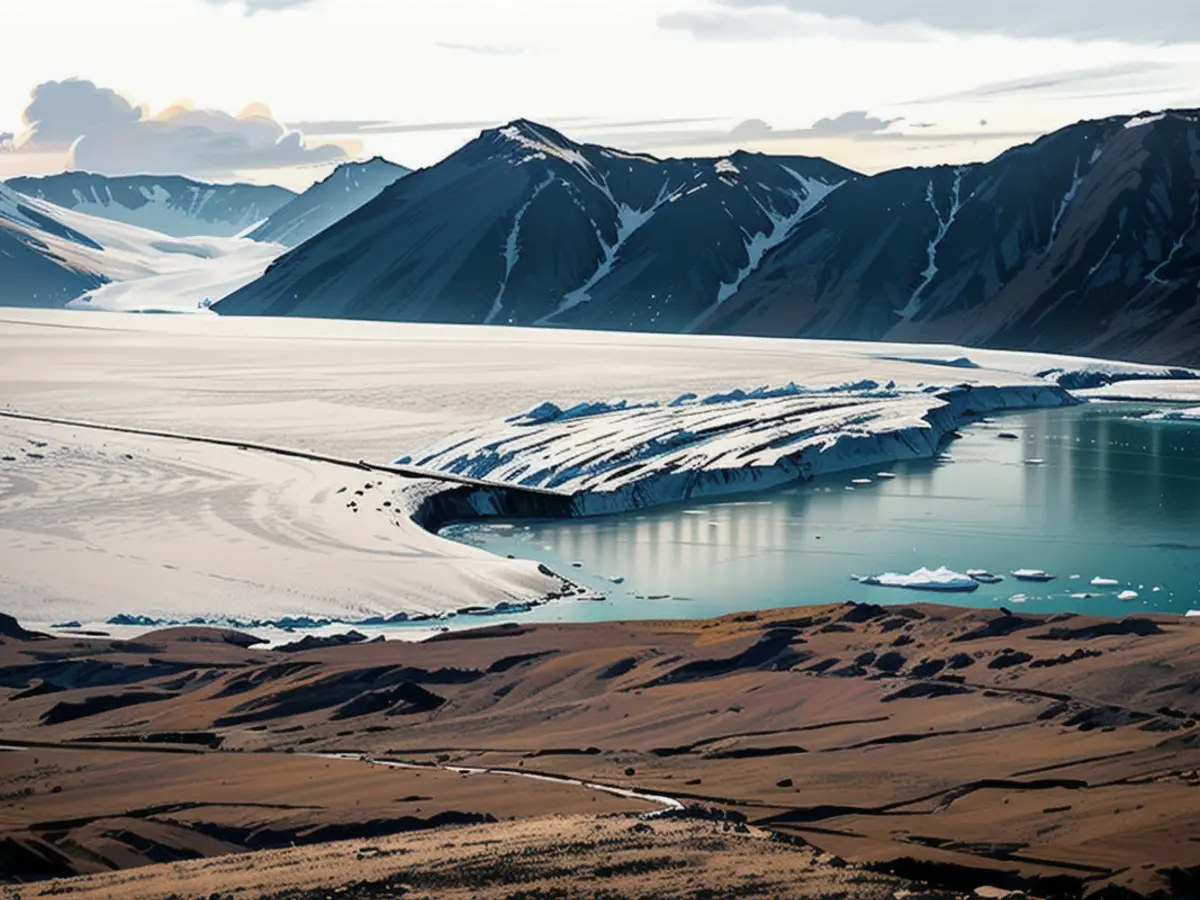Does $324 million spare? Consider purchasing a part of this significant Arctic island chain.
Stretching across 14,830 acres (23.2 square miles), this region holds notable environmental, scientific, and economic value, as stated by agent Knight Frank.
This cluster of islands is situated midway between mainland Norway and the North Pole, and has gained more geopolitical significance due to the shrinking amount of sea ice, allowing for new trade routes and increasing its strategic importance.
The sellers emphasize that with the current geopolitical and strategic factors, the area's commercial potential, ongoing climate changes, and escalating interest in arctic regions, the estate offers a rare opportunity.
The location lies within Wedel Jarlsberg, on the western side of Svalbard archipelago, and is accessible by boat from Longyearbyen - the region's largest settlement - in just three hours. Longyearbyen offers regular flights to Oslo, the Norwegian capital.
Nestled within a fjord, the land boasts five kilometers (three miles) of coastline, along with mountains, glaciers, and a substantial thriving wildlife population, notes the listing.
The possible buyer would obtain Aktieselskabet Kulspids, a Norwegian private limited company that currently owns the land.

A lawyer for these sellers, Per Kyllingstad, informed CNN that this company was established over a hundred years ago by affluent families from Oslo who sought to mine asbestos on the property. When they discovered the infeasibility of such an operation, there was hardly any subsequent activity.
Kyllingstad mentioned that ownership of the company has changed over time, and today the current owners believe it best to sell due to the rising interest in the Arctic.
"This is the last private land on Svalbard," remarked Kyllingstad, who also highlighted the vast opportunities for various activities.
The successful buyer will obtain approval to set up "wireless telegraphy installations", as well as take advantage of the exceptional site for satellite communication, in light of its extreme northerly location.
Potential buyers are reportedly nations, government agencies, or ultra-wealthy individuals, according to Jonathan Webb, a lawyer for Zeiler Floyd Zadkovich, the international firm working with Kyllingstad on the sale.

Webb commented that this land is in a league of its own compared to other trophy properties.
The buyer, no matter their nationality, must hail from one of the 46 nations that have ratified the Svalbard Treaty, which bestows Norwegian sovereignty upon the archipelago. Any nation can ratify the treaty, grants equal rights to all signatories.
Despite the preference to bestow the land on the Norwegian government, the sellers will ultimately offer it to the highest bidder on the open market, Kyllingstad clarified.
Although Norwegian authorities bought another piece of land about a decade ago under rumored interest from China, they have no power to halt a sale to any member of the Svalbard Treaty.
"They are obliged to treat all the parties to the treaty equally," he said.

Read also:
- Fear of escalation in the Middle East: US Secretary of State Blinken travels to the region again
- Government circles: US Secretary of State Blinken to travel to Middle East again
- Bridging days 2024: How you can double your vacation this year
- Germany has wanderlust: how tour operators and airlines are looking ahead to the next travel year
The estate's commercial potential and the escalating interest in arctic regions make it an appealing investment for wealthy individuals interested in travel to remote, unspoiled landscapes. With the current geopolitical and strategic factors, this Arctic island chain could also serve as a unique location for scientific research and environmental studies.
Source: edition.cnn.com








